Astronaut Scott Kelly reveals the main obstacle for future Mars trips
Astronaut Scott Kelly talks to Fox News about what life was like during his year in space and the one obstacle a trip to Mars faces.
Astronaut Scott Kelly made history in 2016 when he became the first American to spend 12 consecutive months in space after an epic 340-day stint on the International Space Station.
During his time in orbit, Kelly also took part in a groundbreaking study that involved his twin brother and fellow astronaut Mark, back on Earth. The brothers provided blood, saliva and urine samples, underwent ultrasounds and bone scans, got flu shots and more, all in the name of science.
NASA has now published the results of the study, which involved 10 research teams, in the journal Science.
ASTRONAUT SCOTT KELLY: MY INCREDIBLE YEAR IN SPACE AND THE 'CRAZY RIDE' BACK TO EARTH
Probably the strangest finding concerned telomeres, which are the protective ends of chromosomes. Those tips gradually shorten as we get older, and are thought to be linked to age-related diseases including some cancers.
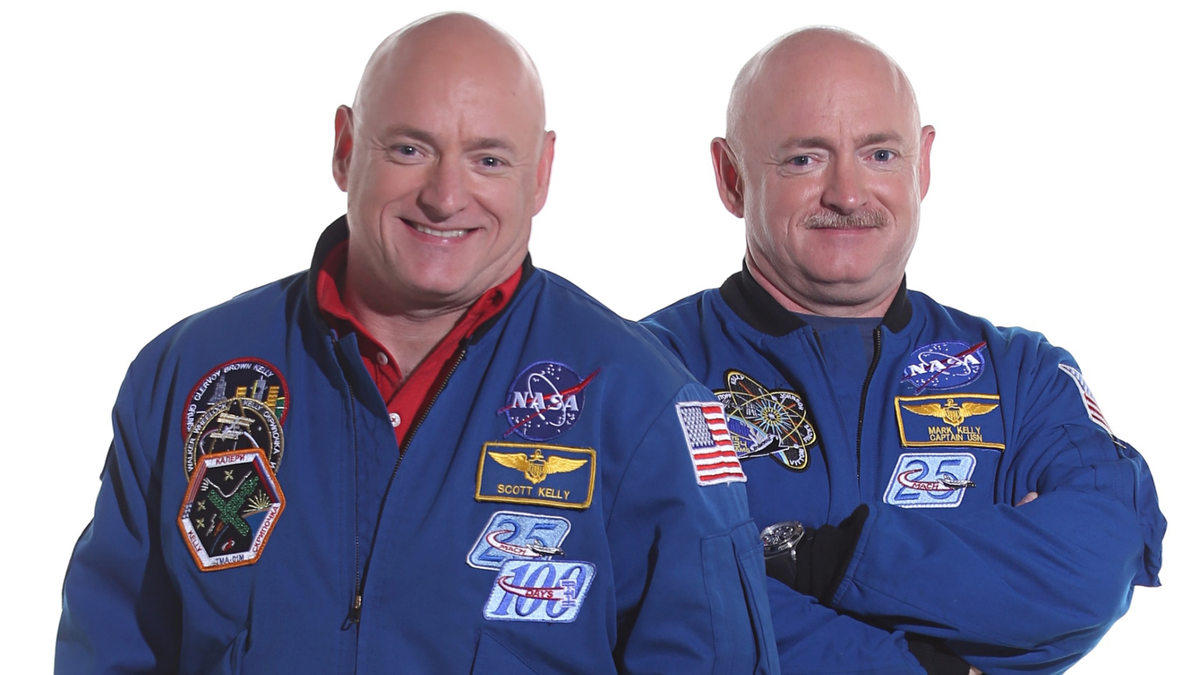
File photo - Scott Kelly (left) spent a year in space while his identical twin Mark (right) stayed on Earth as a control subject. (NASA)
In space, however, Scott Kelly's telomeres got longer. "We were surprised," said Colorado State University telomere expert Susan Bailey. She can't explain it although it doesn't mean Kelly got younger. Back on Earth, his telomeres mostly returned to preflight average although he did have more short telomeres than before.
In a statement, NASA explained that, because telomeres are important for cellular genomic stability, more studies on them are planned for future one-year missions.
ASTRONAUT SCOTT KELLY: HOW I WENT FROM BAD STUDENT TO SPACE STAR
In another finding, scientists noted that, while Kelly's DNA wasn't mutated in space the activity of many of his genes — how they switch on and off — did change, especially in the last half of the voyage, which ended in March 2016.
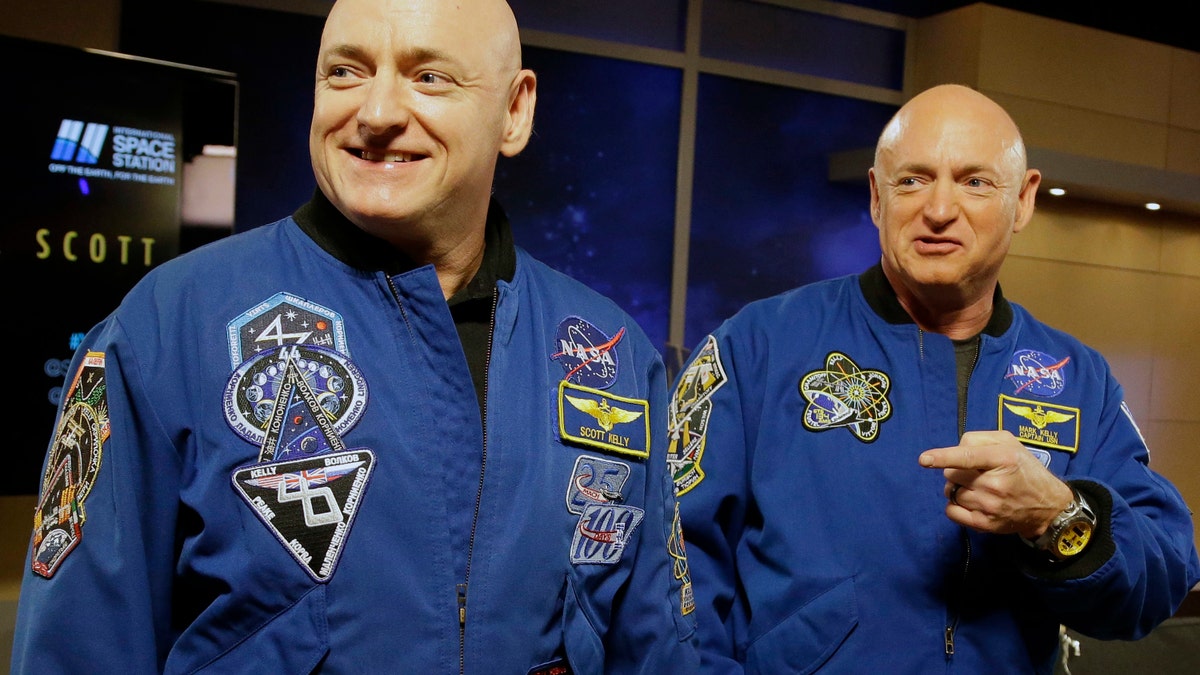
In this March 4, 2016 file photo, NASA astronaut Scott Kelly, left, and his identical twin, Mark, stand together before a news conference in Houston. (AP Photo/Pat Sullivan, File)
“While in space, researchers observed changes in the expression of Scott’s genes, with the majority returning to normal after six months on Earth,” explained NASA in its statement. “However, a small percentage of genes related to the immune system and DNA repair did not return to baseline after his return to Earth.”
Scientists also identified key genes that can be targeted for monitoring the health of future astronauts.
SCOTT KELLY: YEAR IN SPACE PAVES THE WAY FOR EVEN LONGER MISSIONS
Crucially, researchers discovered that a flu vaccine administered to Scott in space worked the same as one administered to Mark on Earth, a finding that could be crucial for long space journeys. “A fully functioning immune system during long-duration space missions is critical to protecting astronaut health from opportunistic microbes in the spacecraft environment,” explained NASA.
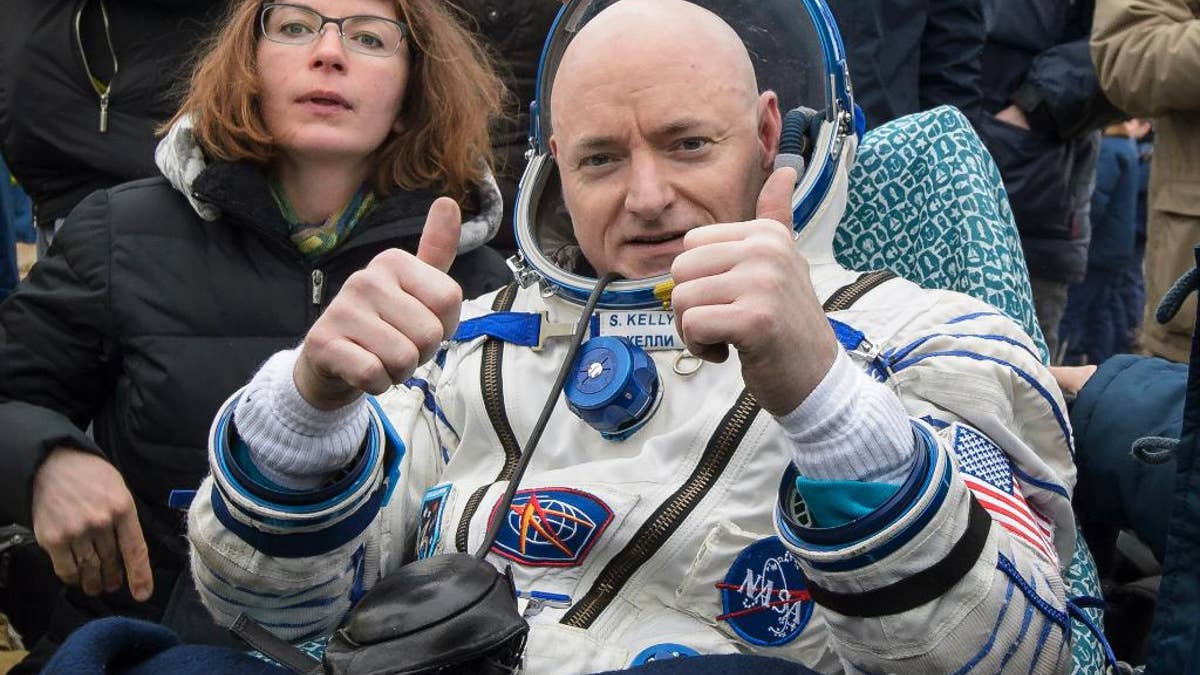
FILE - In this Wednesday, March 2, 2016, file photo provided by NASA, International Space Station (ISS) crew member Scott Kelly of the U.S. reacts after landing near the town of Dzhezkazgan, Kazakhstan. (Bill Ingalls/NASA via AP, File)
NASA’s goal is to send a manned mission to Mars by 2035, prompting extensive research ahead of an epic roundtrip journey that could take two and a half years.
Radiation also poses a major challenge for Mars missions, along with the durability of astronauts’ bodies and minds.
ASTRONAUT SCOTT KELLY WAS 2 INCHES TALLER AFTER HIS EPIC YEAR IN SPACE
Scott Kelly did experience some chromosomal instability during his year on the orbiting space lab that might reflect radiation exposure in space, according to the NASA study. He also performed better on cognitive tests in space but slowed down after his return, possibly as more things competed for his attention.
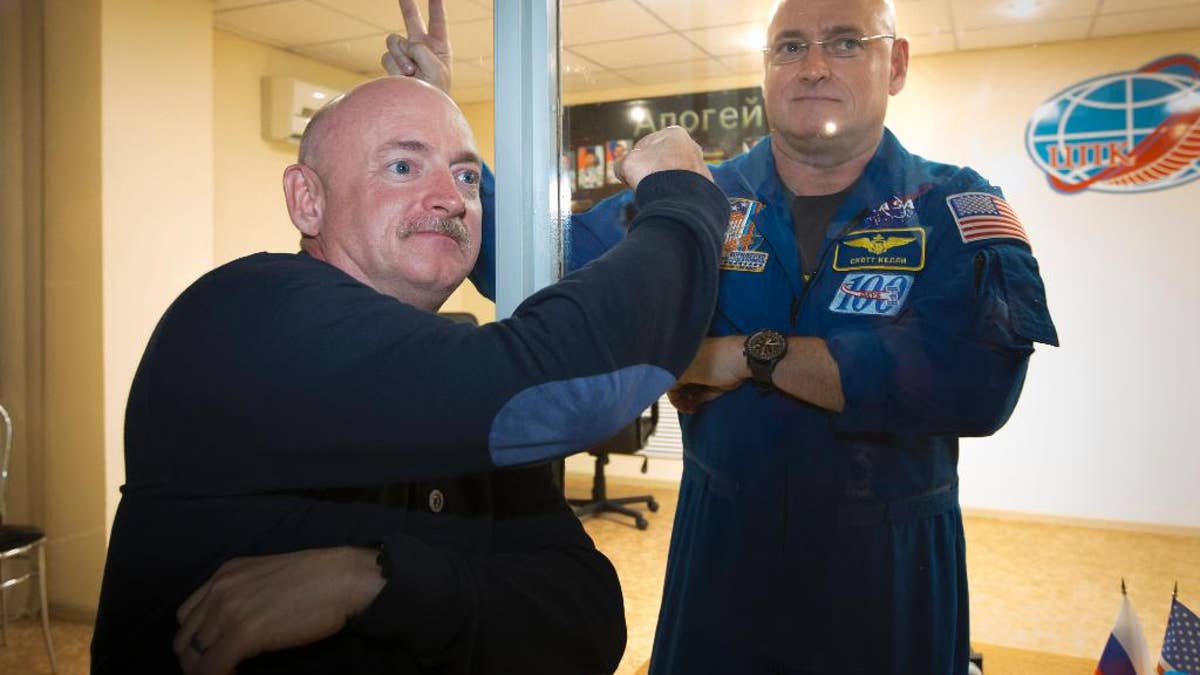
U.S. astronaut Scott Kelly, right, crew member of the mission to the International Space Station, ISS, poses through a safety glass with his brother, Mark Kelly, after a news conference in Russian leased Baikonur cosmodrome, Kazakhstan, Thursday, March 26, 2015. (AP Photo/Dmitry Lovetsky)
Similar to nearly 40 percent of all astronauts, the former U.S. Navy pilot experienced changes in the structure of his eye and thickening of his retina in space, which may be symptoms of "spaceflight-associated neuro-ocular syndrome." The changes may the result of fluids shifting in the absence of gravity, scientists say.
Also, like other astronauts, Kelly experienced a temporary height gain in space.
BUZZ ALDRIN EYES 2040 FOR MANNED MARS MISSION
Scott Kelly described his historic year in space during an interview with Fox News last year. “I was surprised at how long a year is – it’s a really, really long time,” he said.
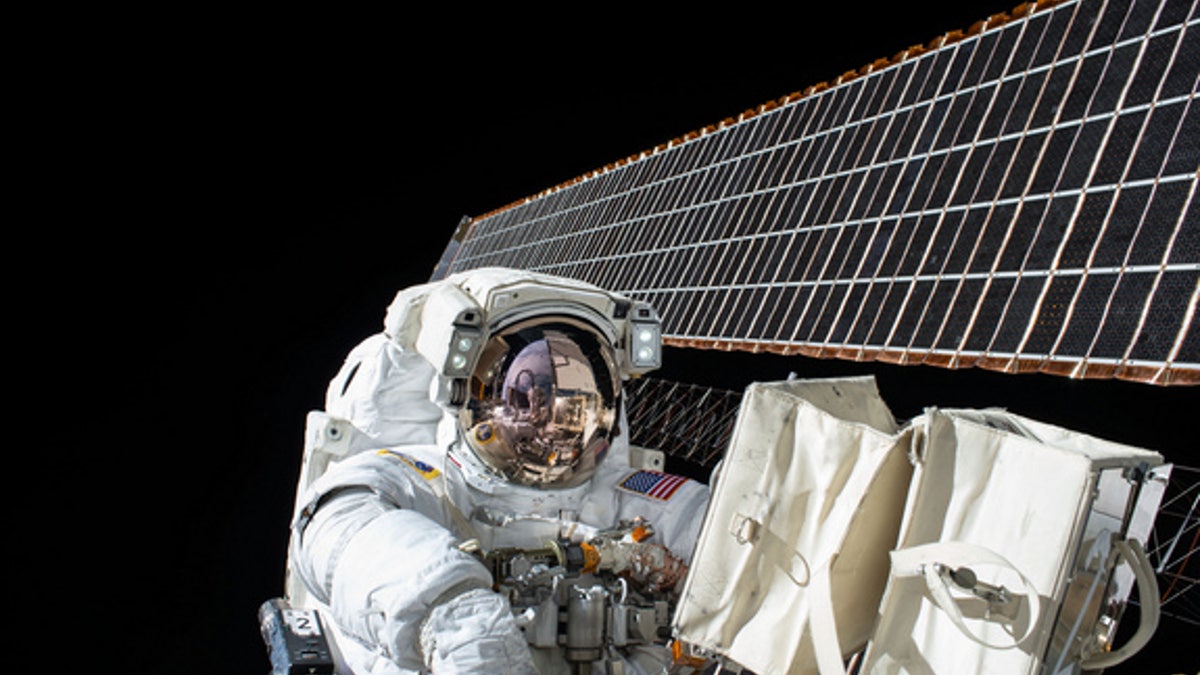
File photo of Scott Kelly during a spacewalk (NASA)
“It’s a crazy ride, coming back into Earth in a capsule,” Scott explained. “It’s like the wildest ride you will ever have in your life – it’s kind of like going over Niagara Falls in a barrel, but while you’re on fire. As soon as you realize you’re not going to die … [it’s] the most fun you’ll ever have in your life.”
CLICK HERE TO GET THE FOX NEWS APP
Kelly retired from NASA in 2016 after his return from the ISS.
The Associated Press contributed to this article. Follow James Rogers on Twitter @jamesjrogers









































